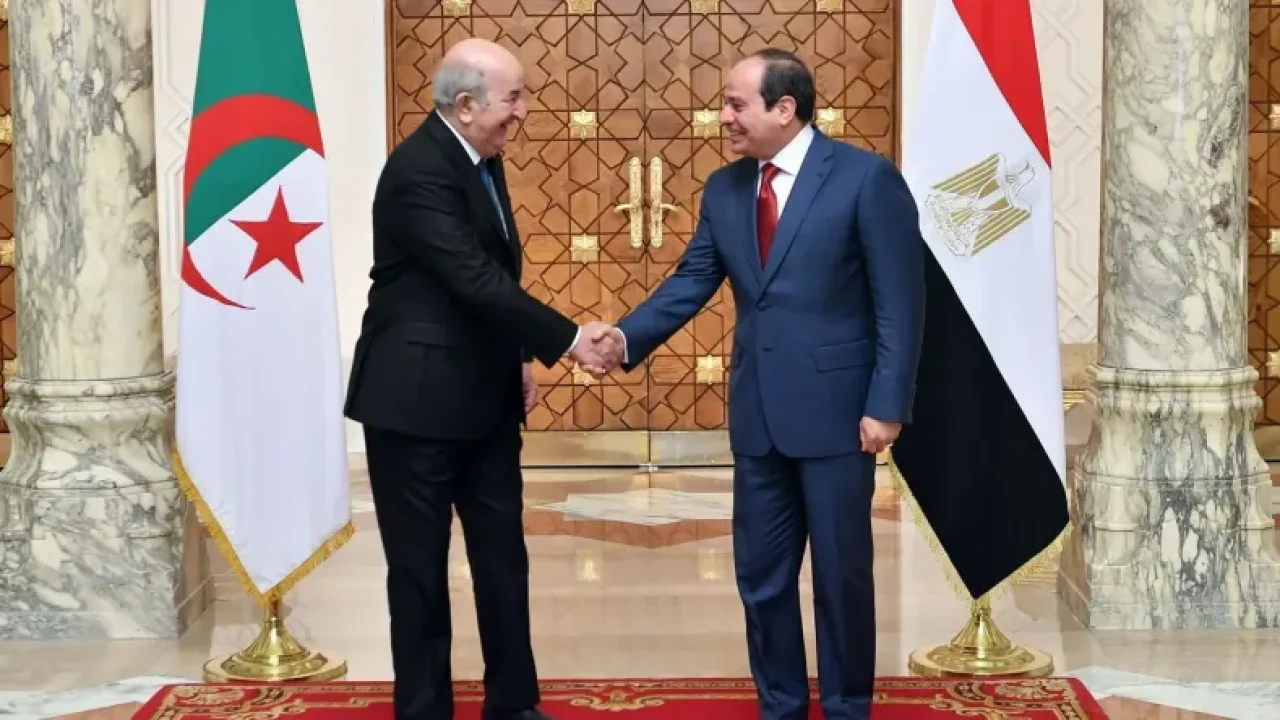
Algeria and Egypt have announced the reactivation of their long-dormant joint commission, signaling a renewed effort to strengthen bilateral ties amid a shifting regional landscape.
The announcement follows a telephone conversation on Thursday between Algerian President Abdelmadjid Tebboune and his Egyptian counterpart Abdel Fattah Al-Sisi, according to an official statement from the Algerian presidency.
During the call, the two leaders discussed regional developments and their implications for both countries, reaffirming a shared commitment to deepening cooperation.
“The deep-rooted relations between Algiers and Cairo, inherited from the liberation struggles and pan-Arabism of the 1960s, must be intensified and extended to all levels of cooperation,” the statement said, noting that the next session of the Algerian-Egyptian Grand Joint Commission will be organised “as soon as possible” after years of inactivity.
The move comes as Algeria seeks to consolidate its network of Arab allies in the face of growing regional isolation.
Tensions with Morocco, ongoing mistrust with Tunisia, and delicate relations with Gulf states have prompted Algiers to revisit its historic partnerships.
For Cairo, the revitalisation of bilateral relations offers an opportunity to strengthen influence in the Maghreb and secure political support on key African and Mediterranean issues.
While the call emphasised Arab solidarity and shared interests, no immediate announcements were made regarding new economic, energy, or security agreements.
Previous mechanisms of cooperation between Algeria and Egypt, particularly in military and cultural fields, have yielded limited results in recent years.
President Tebboune also congratulated Al-Sisi on Egypt’s election to the UNESCO presidency, praising “a renewed recognition of a great state with a thousand-year-old culture.” Analysts suggest that the conversation, while formal in tone, reflects Algeria’s attempt to assert its role as a regional mediator, while Egypt consolidates strategic alliances across the Arab and African spheres.
Observers note that the ultimate test of this rapprochement will lie in the two countries’ ability to transform diplomatic rhetoric into tangible projects, particularly in areas of trade, security, and regional stability. For now, the revival of the joint commission signals a cautious but deliberate step toward reinforcing a historically significant partnership.



